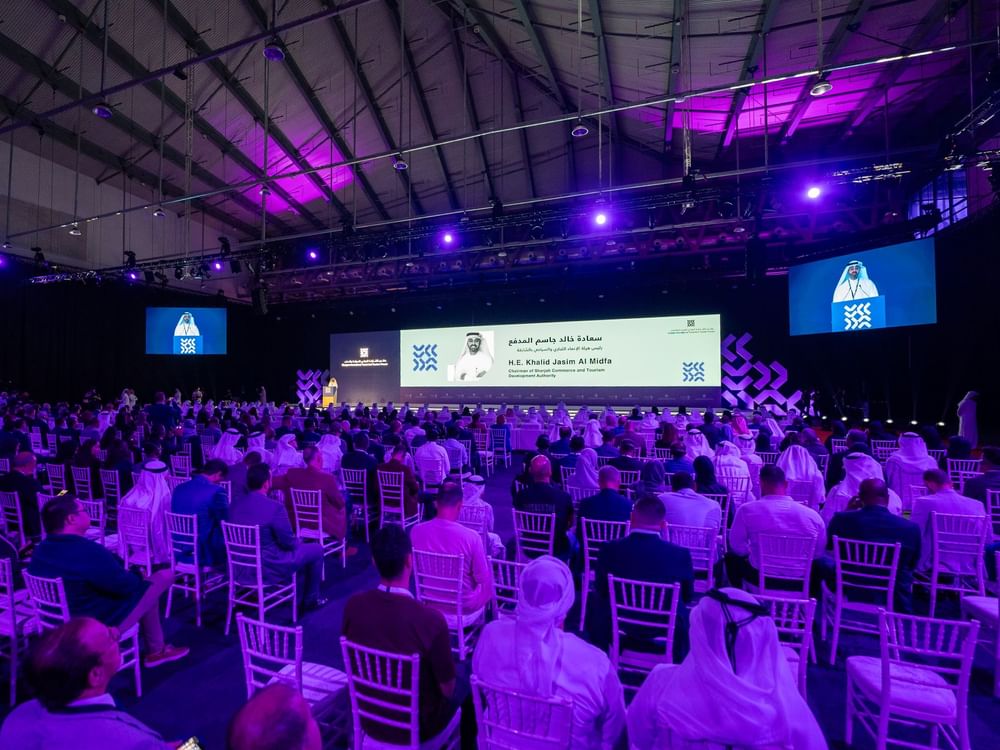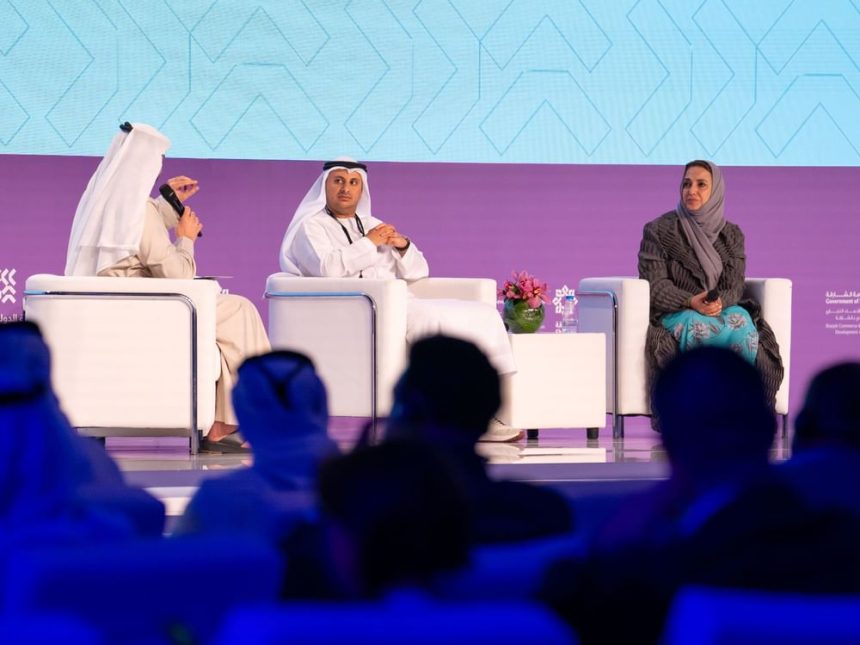Government officials and tourism sector experts have stated that global tourism trends are compelling the hospitality and tourism sector to adopt sustainable options and create destinations that meet the aspirations of visitors. They highlighted that people are increasingly concerned about how they can make a positive impact on the environment and emphasized that the United Arab Emirates, with its advanced and modern infrastructure and vibrant environment, provides an ideal model for sustainable and responsible tourism destinations.
These remarks were made during a series of presentations and panel discussions at the “Sharjah International Forum for Tourism and Travel,” organized by the Sharjah Commerce and Tourism Development Authority at the Expo Centre Sharjah. The event featured speakers such as Mr. Ahmed Obaid Al Qaseer, CEO of Sharjah Investment and Development Authority (Shurooq), Dr. Nawal Al-Hosany, Assistant Undersecretary for the Green Development and Climate Change Sector at the Ministry of Climate Change and Environment, and the Permanent Representative of the UAE to the International Renewable Energy Agency (IRENA), Iftikhar Hamdani, Regional General Manager of HMH Hotel Group, Coco Tang, Board Member of the World Sustainable Tourism Council, and Paul Bridger, Executive Operations Manager at the Rove Hotel.
During a presentation titled “Vision of Tomorrow,” Mr. Ahmed Obaid Al Qaseer highlighted the key sustainable and environmentally friendly tourism and hospitality projects developed by Shurooq. He stated that their goal is not just to offer hospitality services but to provide unique and authentic experiences, aiming to attract tourists to explore the rich heritage of the UAE.
Al Qaseer discussed upcoming projects in Sharjah, such as the Najd Village, Al Mokshar, and developments in Khorfakkan and historically significant areas like Maliha. He emphasized that Sharjah has much to offer in terms of environmental and sustainable tourism, constantly seeking to provide exceptional experiences for unique and unprecedented interactions with visitors.
Following the presentation, Al Qaseer participated in the first panel discussion alongside Dr. Nawal Al-Hosany, titled “Sustainability Practices – Innovating for Positive Impact, Collaborating for Change.” Al Qaseer highlighted that sustainability in tourism presents numerous opportunities and potentials. He stressed the importance of setting clear goals for sustainability, ensuring that all environmentally friendly practices serve a purpose and yield measurable results.
He stated that tourism contributes significantly to the GDP, and in some countries, managing the influx of tourists can be challenging. Hence, practices that are environmentally friendly and beneficial to communities and individuals are crucial. Al Qaseer emphasized the importance of learning from past experiences and increasing awareness of how to deal with challenges in this regard.
Dr. Nawal Al-Hosany discussed the growing global awareness of sustainability and environmental practices, along with the increasing demand for adopting these practices. She highlighted four criteria for sustainability: contributing to economic development, impacting the environment, achieving positive cultural effects, and achieving positive social effects. She mentioned that tourists today seek rich and detailed travel experiences rather than mere visits, which has led to a shift in the traditional concept of tourism.
She noted that the UAE has been a pioneer in adopting renewable energy and currently possesses stations that have set several world records, including having four of the world’s largest and lowest-cost solar power stations. The country continues its strong efforts in this regard.
The second panel discussion of the forum was titled “Strategies for Sustainable Travel and Tourism,” moderated by Doug Lansky, a global tourism expert and destination consultant. Coco Tang, a board member of the World Sustainable Tourism Council, stressed the central role of communities in accelerating the pace of sustainable choices. She emphasized the need for continuous monitoring, data collection, and supervision to measure individual awareness and involve them in achieving government goals, solidifying a culture of sustainability in various sectors.
Tang stated that sustainability must be linked to the market, and guidelines and principles must be established in all sectors. For example, programs like green point systems and electronic cards in hotels can encourage guests to choose sustainable approaches.
Iftikhar Hamdani, Regional General Manager of HMH Hotel Group, highlighted that success in sustainability is only possible through persistent thinking and efforts, not settling for the minimum. He emphasized the importance of replicating successful initiatives and showcasing their results to increase environmental awareness.
Hamdani presented several initiatives implemented in their hotels, including a waste management initiative that transforms waste into fertilizer for crops, achieving significant and remarkable success.
Paul Bridger, Executive Operations Manager at Rove Hotel, discussed the importance of considering work teams and partners when discussing any sustainability initiatives in the hotel sector. He mentioned that educating work teams contributes to facilitating the implementation of these initiatives and achieving the desired success, as seen in several initiatives they have undertaken.
The forum included workshops presented by Danish Dihal, Director of Human Resources and Training at Sharjah National Hotels. The first workshop, titled “Sustainability Commitment Initiative,” discussed the advantages of adopting environmentally friendly solutions, such as electric vehicles contributing to the overall sustainability of the tourism sector and the local economy.
In the workshop titled “Exceeding Expectations Journey,” which targeted companies operating in the tourism sector, Danish Dihal emphasized the importance of companies embracing the explorer mentality in the current stage to promote expansion and prosperity. He highlighted the importance of offering distinctive travel programs by understanding customer needs, suggesting new activities, and designing unique experiences.
Karim Al Marzouqi, Marketing Director at Sharjah Commerce and Tourism Development Authority, presented the strategy of the Sharjah Commerce and Tourism Development Authority for sustainable tourism. He explained that it is based on six core pillars to achieve sustainability in tourism: climate, waste, water, nature, education, and culture. The strategy emphasizes the importance of innovating new and distinctive experiences that meet the needs and expectations of tourists.


